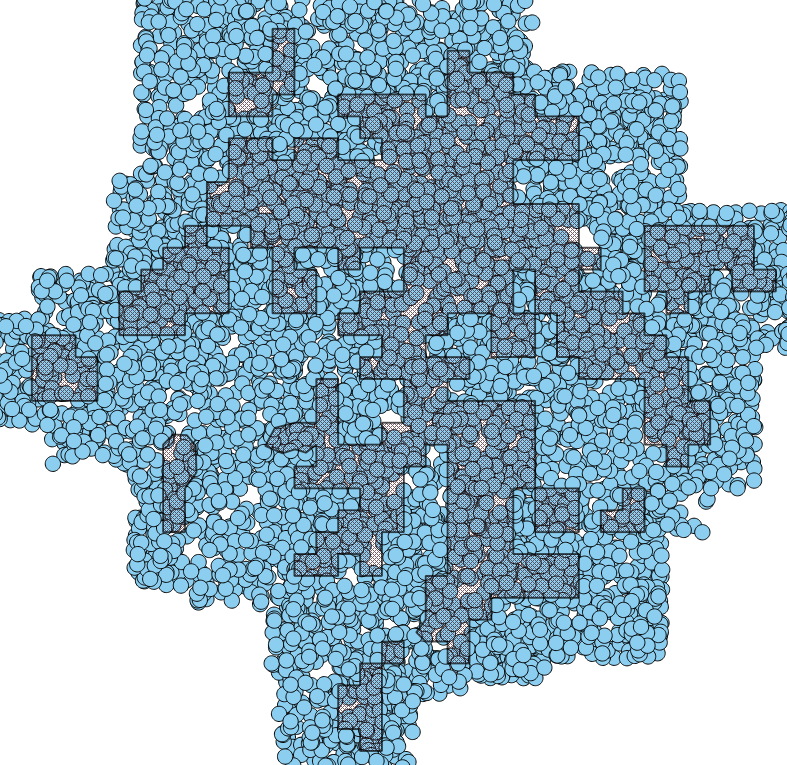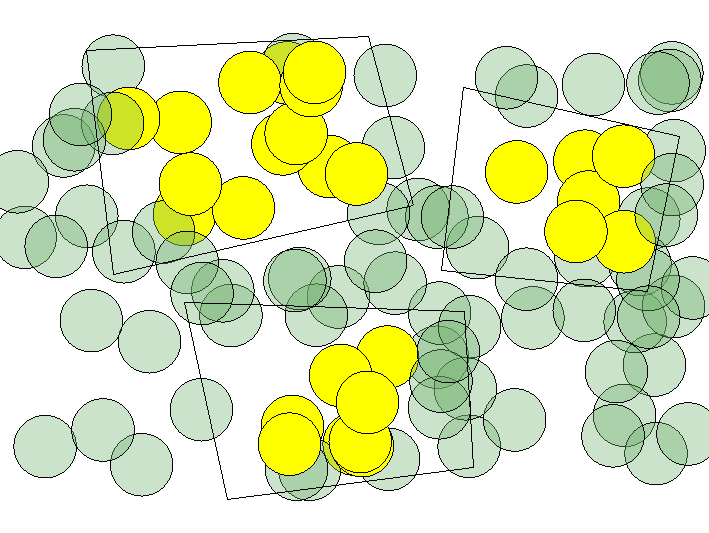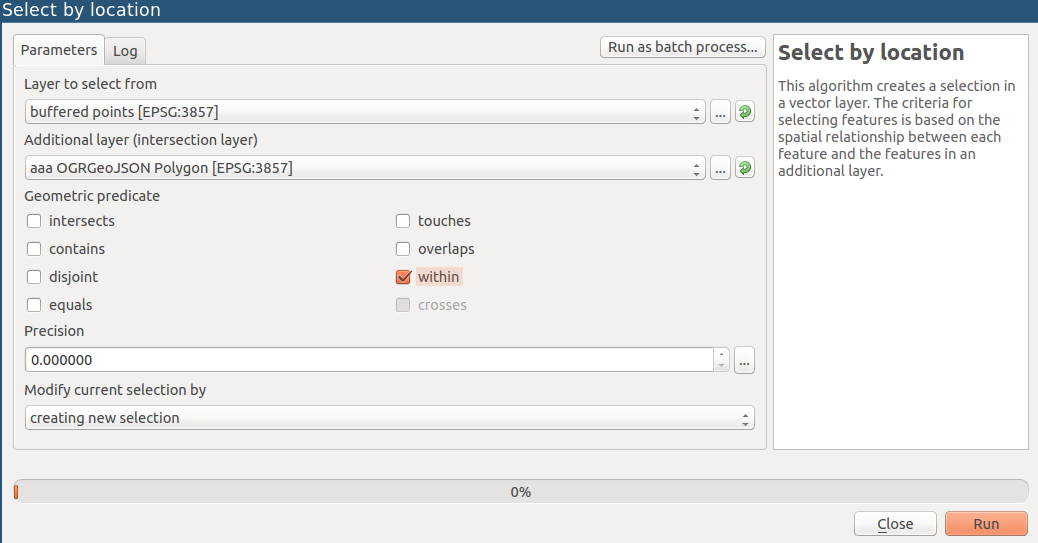I am using QGIS 2.18 and I have two shapefiles:
- "circle" layer; containing lots of circular polygons, many of them overlapping.
- "mask" layer; containing few much larger polygons (not overlapping).
The mask layer covers many, but not all of the circles. I tried to select all polygons of the circle layer which lie within the boundaries of the mask layer-polygons. Both layers share the same CRS. However, both the standard QGIS-function select by location and the GRASS-function v.select produce no result. The "intersect" tool does not help here, as circles at the edge of the mask layer get cut in pieces. Why is this? Any solutions to this issue?



